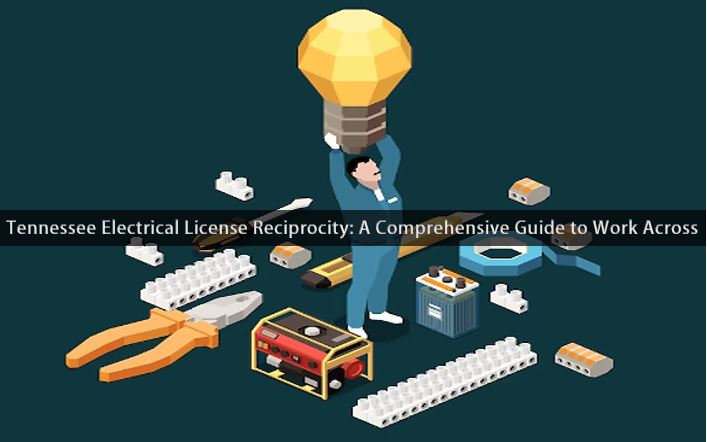Tennessee Electrical License Reciprocity: A Comprehensive Guide to Work Across

Working across state lines as an electrical contractor in the United States is more complex due to differences in regulations and requirements. However, certain states have reciprocity agreements that make this transition smoother. This article provides a comprehensive guide to understanding Tennessee Electrical License Reciprocity, enabling electricians to work seamlessly across different states.
Understanding Reciprocity
Reciprocity agreements are mutual understandings between states that allow a licensed professional from one state to practice in another without retaking examinations or meeting additional licensing requirements. Tennessee has such agreements with several states in the context of electrical licensing. It is important to note that reciprocity agreements may vary between states depending on certain conditions and requirements.
The Tennessee Reciprocity Agreement
Tennessee maintains trade exam waiver reciprocity with Alabama, Arkansas, Georgia, Louisiana, Mississippi, North Carolina, Ohio, and South Carolina. This agreement means licensed electricians from these states can apply for a Tennessee license without taking the state’s trade exam. It’s important to note that this does not equate to full license reciprocity; electricians still need to apply for and obtain a Tennessee license to operate legally within the state.
Licensing Process in Tennessee
To become a licensed electrician in Tennessee, individuals must pass the Limited Licensed Electrician (LLE) trade exam. After passing the exam, they must submit a copy of the score, a completed LLE License Application, and a two-year license fee of $50.
For general contractors wanting to work in Tennessee, reciprocal agreements exist with North Carolina, South Carolina, and Mississippi.
Benefits of Working As An Electrician in Tennessee
There are various benefits to working as a reciprocity-licensed electrician in Tennessee. Below are some:
- Professional development: Working as an electrician in Tennessee offers unique professional growth and development opportunities.
- Job security: The state’s electrical licensing board is committed to ensuring the safety of its citizens by requiring qualified electricians to practice within the state. This helps create more job security for those already holding a license.
- Increased wages: Electricians in Tennessee often receive higher wages than those employed in other states.
- Access to more job opportunities: Becoming licensed as a reciprocity electrician in Tennessee allows individuals to access lucrative job opportunities that may not be available in their home state.
Study With RocketCert
If you are an electrician seeking to expand your professional horizons by working in Tennessee, RocketCert can help get you there. Our comprehensive online preparation materials provide all the information and practice needed to pass the LLE trade exam and work as a reciprocity-licensed electrician in Tennessee. With our simple one-click registration process, you can start preparing for the LLE exam today!
Furthermore, we offer a money-back guarantee if you are not satisfied with our services. So why wait? Get started towards becoming a successful reciprocity-licensed electrician in Tennessee with RocketCert now!
Conclusion
Understanding these reciprocity agreements is crucial for electrical contractors planning to work across state lines. These agreements can simplify the licensing process and provide more opportunities for work. However, it’s essential to remember that Tennessee requires all electricians, even those from reciprocal states, to obtain a Tennessee electrical license before practicing within the state. Always check with the relevant licensing boards for the most up-to-date information.








